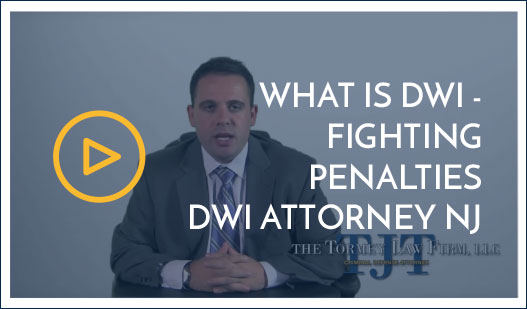Hackensack Extreme Risk Protective Order Lawyer
Experienced Attorneys Fighting for Your Gun Rights in Bergen County, New Jersey
 Did you know regular citizens in certain states have the power to request the removal of firearms from any individual they deem unfit or a threat to themselves or their community? Is this possible in New Jersey? Yes, the state of NJ is one of 19 states in the US that offer Extreme Risk Protective Orders (ERPO), which can be issued in as little as less than 24-48 hours.
Did you know regular citizens in certain states have the power to request the removal of firearms from any individual they deem unfit or a threat to themselves or their community? Is this possible in New Jersey? Yes, the state of NJ is one of 19 states in the US that offer Extreme Risk Protective Orders (ERPO), which can be issued in as little as less than 24-48 hours.
New Jersey’s Extreme Risk Protective Order Act, implemented on September 1st, 2019, is known among the broader category of “Red Flag” laws. Through an ERPO, a concerned family member, law enforcement officer, or member of the household can temporarily have firearms in possession of an individual who may harm themselves or pose a danger to others seized temporarily or permanently (depending on the outcome of a follow-up hearing or appeal). In addition, while the ERPO is in force, individuals are prohibited from purchasing new firearms.
If you are dealing with a temporary extreme risk protective order that may become permanent, are scheduled for a final hearing date in an ERPO case, have been accused of violating an existing ERPO, or are seeking to terminate an extreme risk protective order and restore your gun rights, do not hesitate to contact our Bergen County Weapons Lawyers for immediate assistance. We have successfully handled Extreme Risk Protective Order cases and weapons charges for crimes like unlawful possession of a weapon, possession of a weapon for an unlawful purpose, brandishing a weapon, and unlawful disposition of a firearm for clients in Lyndhurst, Fort Lee, Mahwah, Garfield, Lodi, Teaneck, Fairfield, Paramus and surrounding Bergen County areas. Please call (201) 330-4979 to speak with an attorney in a free consultation or schedule an appointment with a lawyer at our Hackensack office and begin preparing your best defense.
The Impact of an Extreme Risk Protective Order on Your Rights as a New Jersey Gun Owner
ERPO laws were established to provide legal mechanisms for intervening when there is credible and solid evidence of an individual or family member experiencing temporary distress or a crisis, at risk of self-harm or harm to others, and is in possession of a firearm. ERPOs are sometimes called gun violence restraining orders as they were modeled off domestic violence restraining order laws. Thus, the “petitioner” and “respondent” formats in ERPOs mirror standard domestic violence petition and order proceedings. No doubt, speedy implementation of these laws is beneficial when substantial risks exist. However, less than 24 hours is a short window, especially to establish a gun owner as enough of a threat to remove their firearms.
Although the regulation is designed to protect individuals and neighborhoods alike, in some instances, ERPOs are petitioned for, and even approved, based exclusively on alleged statements and opinions of others. In many cases, orders are issued without any or with insufficient evidence of actual threats of harm, misuse, and lacking meaningful documentation. Often, seasoned NJ Gun law attorneys find ERPO procedures launched by disgruntled relatives or someone with whom you may have had a falling out.
Nevertheless, advocates for red flag laws emphasize that the principle is to protect citizens from individuals suffering from mental illnesses or crises who are in possession of weapons and protect them from self-harm or hurting others. Still, NJ’s ERPO law can eradicate responsible gun owners’ Second Amendment rights to possess a firearm, purchase a gun or ammunition, carry a weapon, or bear arms in its process, often unjustly or without genuine cause.
The Role of the Petitioner Requesting an ERPO in New Jersey
The ERPO Act stipulates that a “petitioner” is defined as any member of the respondent’s household or family or member of law enforcement acting in an official capacity. Someone meeting the above criteria may file a petition for an ERPO. In finer detail, “family or household members” is defined under NJSA 2C:58-21 as any of the following: spouse, common-law or domestic partner, partner, civil union partner, ex-spouse, ex-domestic partner, a former civil union partner, or any other individual who is at present a member of the same household as the respondent, or was at any time a member of the home; an individual with whom the respondent shares a child, or with whom the respondent anticipates having a child in common, such as a pregnant partner or former partner; or someone with whom the respondent is dating or formerly dated.
The list of who may qualify as a “petitioner” is extensive, including an ex from one’s dating history or potentially a roommate with a chip on their shoulder. The possibilities for who can come after you as a gun owner, and take away your weapons, seem endless. Furthermore, an individual without any relation to you may apply for a petition through the local law enforcement agency associated with the respondent.
Procedures from Temporary to Final Extreme Risk Protection Orders in NJ
 Superior Courts may grant Temporary Extreme Risk Protection Orders (TERPOs) if the harm, danger, or risk poses an immediate threat. When concerned about someone possessing a gun or firearm, an individual can file for one at the Superior Court or they can also request a TERPO to be filed through the police. Individuals can ask for a TERPO through the police if they have safety or security concerns about someone possessing a gun or firearm and it is outside of the normal court operating hours.
Superior Courts may grant Temporary Extreme Risk Protection Orders (TERPOs) if the harm, danger, or risk poses an immediate threat. When concerned about someone possessing a gun or firearm, an individual can file for one at the Superior Court or they can also request a TERPO to be filed through the police. Individuals can ask for a TERPO through the police if they have safety or security concerns about someone possessing a gun or firearm and it is outside of the normal court operating hours.
Individuals filing for a TERPO can request that the judge keep the order’s origin anonymous under claims of personal safety. However, a petitioner who desires a TERPO must appear in the Superior Court under the jurisdiction of the respondent’s primary residence. In addition, the petitioner should be prepared to provide testimony, including credible affidavits supporting a significant claim.
Should the TERPO be granted, law enforcement of the corresponding jurisdiction will enforce the temporary ERPO carrying out the procedure on the respondent. For those who have violated an existing restraining order or are the subject of a restraining order (temporary or final), a TERPO may be granted. In addition, other factors may be considered by the presiding judge, such as criminal records and any violent offenses.
Lastly, warrants may be issued when appropriate for the search and potential seizure of any guns, weapons, other firearms, and ammunition. Regardless, law enforcement must establish probable cause, particularly if the respondent does not want to surrender weapons. Additionally, the evidence must be gathered proving the respondent poses an actual threat to themselves or others.
What Happens at at a Final ERPO Hearing in New Jersey
The court typically holds a hearing within ten days to determine if a Final Extreme Risk Protective Order (FERPO) is warranted. As a gun owner, a respondent can establish their character, personal history, and history of firearms use and safety. Previous NJ FERPO cases have used witness testimony, employment history, mental health assessments by experts, community service records, video footage, and other means of supportive evidence to disprove petitioners’ accusations, revealing a responsible and level-headed gun owner. FERPO hearings and processes likewise include cross-examining witnesses.
How to Terminate a FERPO in New Jersey
A petitioner may request through the court for termination of such ERPOs. A respondent may request a court’s termination of a FERPO order, but it must meet specific criteria to qualify and bear the burden of proving certain elements. Having a lawyer petitioning on your behalf to remove a final extreme risk protective order is critical, as you need to know how to successfully prepare your case, meet all filing and procedural requirements, and prove by a preponderance of the evidence that you no longer pose a risk of harm to others or yourself if you are legally restored of your gun rights to have possession of a firearm or ammunition.
Contact Bergen County ERPO Defense Lawyers Today
When considering FERPO hearings, ERPO petitions, and other related proceedings for extreme risk protective orders, so much is at stake for your personal freedoms. Throughout the entire process, our skilled weapons team will zealously advocate on your behalf if you are the subject of an ERPO or related hearings. It is possible to dispose of a TERPO or FERPO and have your right to bear arms restored, and your guns returned, as we have been able to accomplish for clients in Montvale, Ridgewood, Rutherford, Lodi, Ridgefield Park, and other towns in the greater Bergen County area. Call our Hackensack office at (201)-330-4979 today for a free consultation.


